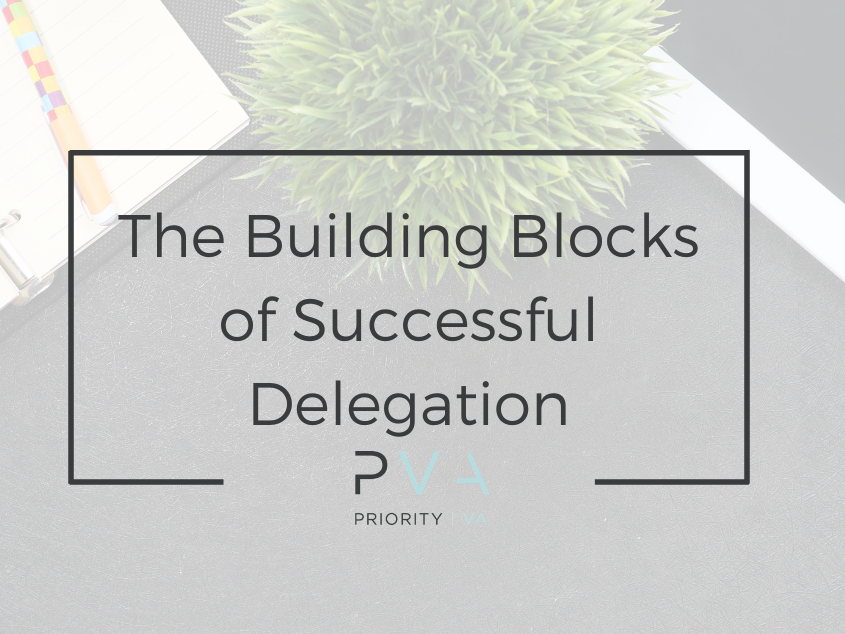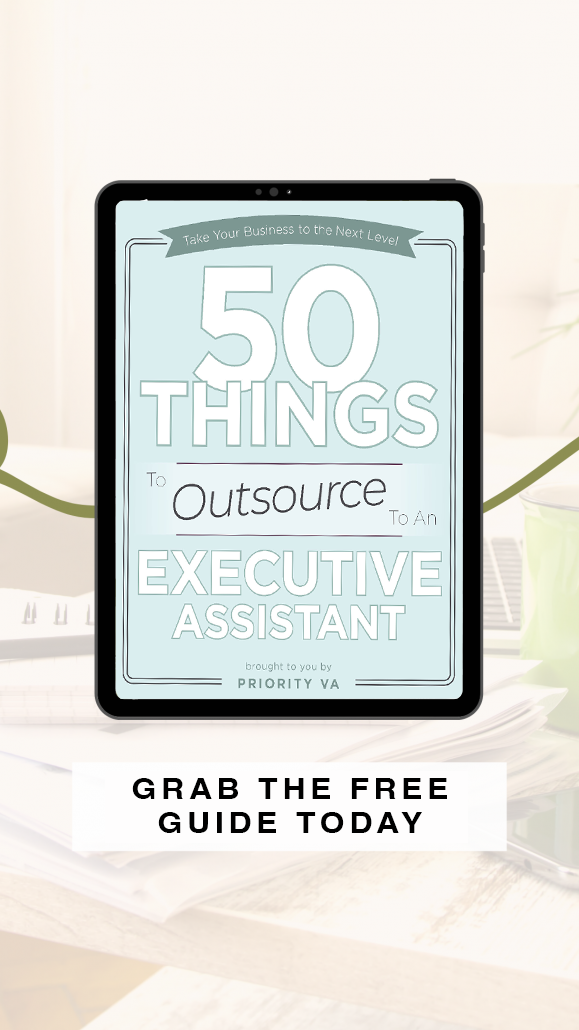Successful delegation strategies have one thing in common: they are focused on outsourcing outcomes, not tasks.
When done correctly, this will allow you to focus your time and energy on the big picture while letting others do what they’re best at.
This blog post is designed to teach you the building blocks of successful delegation strategies so you can get started right away.
Outsource Outcomes, Not Tasks
What the heck is an outcome anyway? An outcome is an end result or goal. When you outsource an outcome, you are enabling an executive assistant to take care of it for you. At least, that is the level of delegation you will work up to.
An outcome for example is email management or calendar management. This differs from a task, which might invite an EA to schedule an appointment for you, or respond to an email.
You should strive to empower your EA to own the entire outcome so you’re freed from the work entirely.
Assigning tasks makes you a taskmaster. Your EA must always return to you for their next task, rather than owning their role and completing everything necessary to achieve your desired end result.
6 Levels of Delegation
So, you’re ready to delegate an outcome. That’s great! But is your EA ready to own it? That may take more time. This is where the 6 Levels of Delegation come into play.
The 6 Levels were adapted from an industry leader we really respect, Ari Meisel. At each level, your EA grows in empowerment to get their job done. Each level also requires less input from you.
After matching an executive with an EA, we teach them the 6 Levels to encourage gradual growth in ownership.
Here is more information about the 6 Levels of Delegation:
Level 1 is “Do As I Say”
This level requires the most input from you. You do a lot of the work, but your EA pushes the outcome across the finish line.
For example, if you want your EA to implement a new CRM system, you’d send them a link to the CRM system you want with specific instructions about which credit card to use and what level of membership you want.
Level 2 – Look Into This
In this level, your EA gathers information for you to make a final decision.
Say you hear about a new CRM system but don’t know if it’s worth adopting for your company. Ask your EA to do the research and present the information. Then, you make the final call.
Level 3 – Give Me Your Advice, I’ll Decide
Here, your EA moves into a more empowered role.
You relinquish more control at this level by asking your EA to find the best CRM systems, do the in-depth research and present the best three options for you to pick from.
Level 4 – Explore, Decide, and Check With Me
At this level, you tell your teammate to look into the best options, choose the winner, but check with me before you put money to that choice.
Level 5 – Explore and Decide, Within These Limits
This is a highly empowered level for your EA that I hope your assistant will operate from most of the time.
At this level, you simply need to give your EA the frame — “Find us a new CRM system, but don’t spend more than $10,000 per year.”
Level 6 – Take Care of It For Me
This is true delegation based on a history of empowerment to get the job done, no questions asked.
At this point, your EA knows your expectations. They feel equipped, empowered and encouraged in their role to act and decide on your behalf to OWN the outcome.
This is the gold standard we hope you and your EA or teammate can achieve together.
You can see how the 6 levels of delegation move you AWAY from rote tasks and build empowerment in your teammate to OWN outcomes.
This gives you FREEDOM to spend more time in your Genius Zone to grow and scale the business.
Remember…
Whether you are onboarding a new EA or are new to delegation, start slow and build. We recommend delegating 1-2 priority outcomes at one time. Give your EA time to gain confidence executing to your standards before putting more on his or her plate.
Your willingness to slow down, encourage them in their role, equip them with what they need and engage with them to remove roadblocks, will create long-term success.





